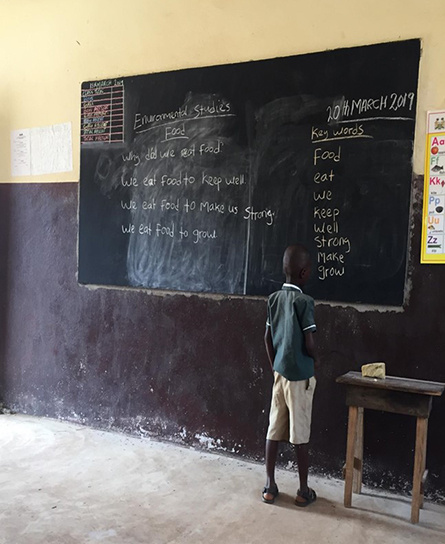
Dr. Elena Samonova from the Institute of Geography at the University of Bremen, presented her research on human rights-based approaches to education and social policy on 28.06.2023.
Based on her research in India, Nepal and Sierra Leone, Dr. Samonova demonstrated the potentials and limitations of the introduction of human rights discourse in the field of social policy. By stipulating an internationally agreed set of norms, human-rights based approaches provide a stronger basis for citizens to make claims on their states and for holding states to account for their duties to enhance the access of their citizens to the realisation of their social, economic and political rights.
In her presentation Dr. Samonova argued that human rights are a multivocal discourse that should be understood as a polyphonic formation consisting of various meanings and interpretations. Using a case study on agricultural bonded labour in India and Nepal, she showed the liberatory potential of the human rights discourse which helps bonded labourers to regain their agency and restore beliefs in their own human dignity. In the context of structural oppression and systematic deprivation, such processes can positively affect self-image, reduce fear to oppose the oppression and motivate bonded labourers to raise their voices against injustice and search for appropriate methods of resistance. While it remains unclear whether these changes in perceptions will lead to the full abolition of the practice, this case has clearly shown that human rights discourse could serve as a tool for resistance against injustices at the grassroots level.
However, as another case from Sierra Leone shows, local interpretations of human rights not always have a liberatory potential: using the right to education as an example, Dr. Samonova argues that in the context of Sierra Leone the discourse of human rights is used to justify economistic neo-liberal approaches to education and social protection. Moreover, her study has also highlighted cultural and social tensions associated with human rights at the grassroots level. These tensions are related to traditional social hierarchies and an individualistic interpretation of rights that is widespread among people in rural areas and is often supported by the rhetoric of the government and big donor organizations such as World Bank.
Whilst Dr. Samonova points to the challenges associated with the introduction of the human rights discourse to social policy, she stresses significant potentials of human rights as powerful tools against poverty and discrimination.
Publications
Samonova, Elena. (2022). Human Rights Through the Eyes of Bonded Labourers in India. Journal of Modern Slavery: A Multidisciplinary Exploration of Human Trafficking Solutions, 7(2): 82-96.
Samonova, Elena et al. (2021). “An Empty Bag Cannot Stay Upright: The costs of “free” primary education in Sierra Leone”. International Journal of Educational Development 87: 102500.
Samonova, Elena et al. (2022). Picturing Dangers: Children’s Concepts of Safety and Risks in Rural Sierra Leone. Children and Society 37: 906–924.
Contact:
Prof. Dr. Ivo Mossig
CRC 1342: Global Dynamics of Social Policy
Mary-Somerville-Straße 7
28359 Bremen
Phone: +49-421-218 67410
E-Mail: mossig@uni-bremen.de













